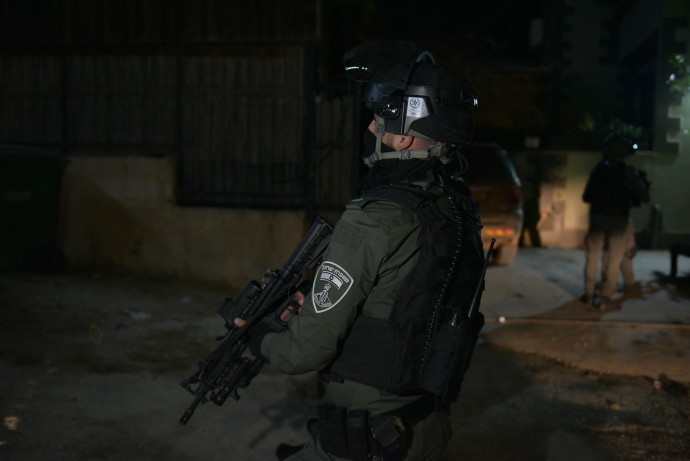Whenever violence gets out of hand in Israel, someone demands to renew or expand administrative detention.
The latest example was Prime Minister Naftali Bennett’s announcement on Monday night that he and the government had authorized administrative detention against Israeli-Arab citizens suspected of having the potential for perpetrating future acts of terror.
Anger and dogged determination to arrest and bring to justice potential terrorists before they kill is understandable, following the multiple terror attacks committed by various Israeli-Arab citizens over the last two weeks. But does the government have a legal mechanism for invoking administrative detention?
Many of the reports about the government’s new initiative suggested that the Shin Bet (Israel Security Agency) would administratively detain Israeli-Arabs with prior convictions of some kind of connection to ISIS but who had been released from prison.
There are dozens of such Israeli-Arab citizens who never committed a violent crime, yet tried to join ISIS in Syria during the civil war against Bashar Assad’s regime. Many of those often got squeamish as soon as they met actual ISIS fighters, and ran back to Israel where they were arrested.

Most of these individuals were sent to jail for a year or a few years since their only crime was crossing into an enemy state without authorization, and they were looking to fight Assad and not Israel per se.
How can such people be administratively detained once they have already served their time?
It is important to recall that administrative detention can be indefinite detention without formal trial or regular charges, though most periods of detention range between six and 12 months, and there are judges performing occasional oversight.
To date, the government says that it uses it in rare circumstances for foreign terrorists, like Hamas agents, only to prevent them from committing future crimes or when presenting evidence at trial that would expose intelligence sources in the field.
Even using administrative detention against foreign terrorists is highly controversial and is rarely used in Western democracies, with the US and Israel being two of the few countries that have used it.
But Israel has never used it to fight domestic criminals – such as those involved in organized crime – who must be brought to trial, and can only be detained for defined periods as set down by civilian courts.
In all but the most extreme cases, a warrant must be issued for certain kinds of police searches for evidence related to crimes.
Even in 2013-2014, when then-public security minister Yitzhak Ahronovitch had a sustained campaign to use the tactic against organized crime (after a car bombing of a government prosecutor,) then-attorney-general Yehuda Weinstein blocked it as illegal.
This is not to say that administrative detention has never been used against Israeli citizens.
A recent high-profile round of detentions was applied against a small group of Jews after the arson-murders of the Palestinian Dawabshe family in Duma in 2015.
But it is rare that it is used against Israeli citizens rather than against Palestinians, and only to stop imminent terror attacks.
Questioned repeatedly, a spokeswoman for Attorney-General Gali Baharav-Miara had not explained by press time how they could legally detain Israeli-Arabs simply because they had a limited previous connection to ISIS. (On Wednesday, the spokeswoman issued a statement saying, "administrative detention, to the extent that it may be used, will obviously be on the basis of a relevant factual foundation specific to each individual case, and according to those conditions set by law as well as with the required legal approvals.")
It is possible that the Shin Bet will take into custody a larger number of such individuals for limited questioning and release most of them, only detaining those with weapons or whose questioning creates additional suspicions.
Another technique used by the Shin Bet to thwart terror before it happens was used in the years following the 2015-2016 Knife Intifada, and that was done by examining Facebook and social media posts.
This was also explicitly mentioned by Bennett.
So if someone has a prior ISIS conviction for trying to fight Assad and still posts generic Islamist ideological posts on Facebook, maybe still against Assad, will they be indefinitely detained?
If this goes on for days or weeks, Israel may yet avoid having it blow up in its face in undermining its legitimacy with the West.
But if it goes on for months, and there are cases where the hard evidence for administrative detention is thin, Jerusalem could be creating another major headache that will headline the next new campaign for anti-Israel activists seeking to label it as an apartheid state, and thus justify their boycotts.
